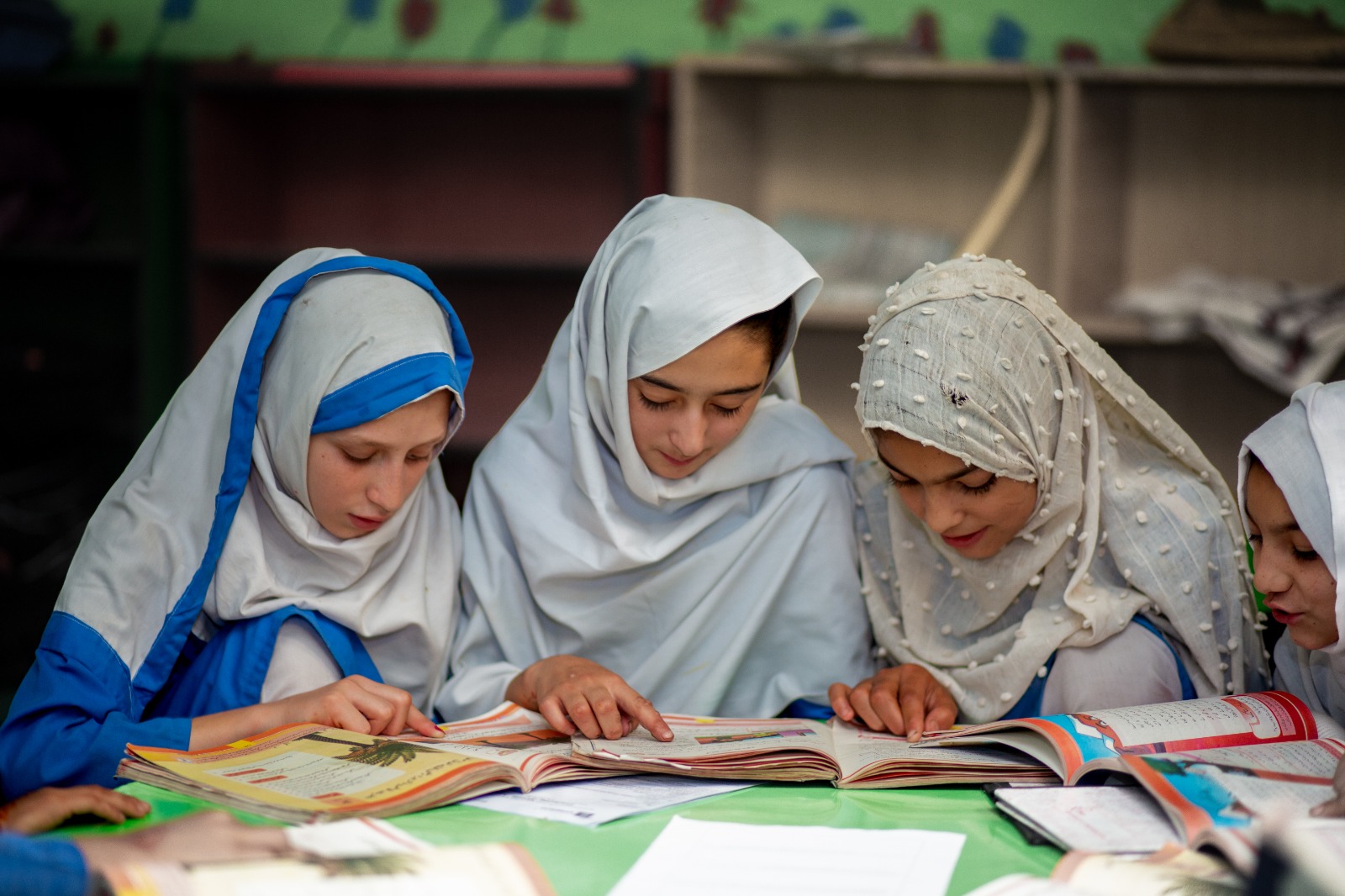This project adopts an integrated, cross-sectoral approach to promote both access to quality education and the safeguarding of cultural heritage through learning. In response to the Covid-19 restrictions, the initiative launched the “Radio My Best Friend” programme, which enabled remote learning via radio broadcasts. This ensured continuity in educational activities while also promoting hygiene and
sanitation practices during prolonged school closures.
Aligned with the project’s overarching goals, the intervention also incorporates indigenous knowledge of the Kalasha community into risk reduction strategies. These include water channeling, riverbank reinforcement, and soil stabilization efforts. Schools are actively engaged in these activities through outdoor education modules, fostering awareness, resilience, and a strong link between cultural heritage and sustainable development. Deliberation n. 111 of 27 october 2016
Zone of Intervention Provincia del South Punjab, KP, Sindh, Gilgit-Baltistan
Canale di
finanziamento Multilaterale a dono
SDG SDG 4: Target 4.1, 4.2 – SDG 5: Target 5.5, 5c – SDG 11: Target 11.4
Gender marker 2Executing Entity United Nations Educational, Scientific and Cultural Organization(UNESCO)Stakeholder Min. dell’Istruzione Federale e Formazione Professionale, Pakistan National Commission for UNESCO, i Dip. dell’Istruzione provinciali in Punjab e KP e Dip. dell’Istruzione distrettuali in Bahawalpur e Swat
Partner Ministry of Federal Education and Professional Training, Pakistan
National Commission for UNESCO, Departments of Education for
Punjab and KP, and the District Education Offices in Bahawalpur and
Swat.
•Local implementing partners: National Rural Support Programme
(NRSP), Teacher Resource Centre (TRC) Bahawalpur and Swat;
National Integrated Development Association (NIDA).
•Directorate of Curriculum and Teacher Training, DOAM-KP
•Directorate General of Archeology, Walled City Lahore Authority,
School Education Department (SED), Government of Punjab
•School Education and Literacy Department (SELD), and Directorate of
Curriculum, Assessment and Research (DCAR), Government of Sindh,
Sindh Textbook Board (STBB), Directorate of Culture, Tourism,
Antiquities, and Archives, Government of Sindh
•Department of Tourism, Government of Gilgit-Baltistan; National
Heritage and Culture Division, Department of Archaeology and
Museums, Lok Virsa – National Institute of Folk and Traditional Heritage,
Government of Pakistan
Local Counterpart Directorate of Archaeology and Museums del KP nel Culture, Tourism,
Archaeology and Museums Department – DOAMKP
Total Cost € 1.500.000
Duration 21st March 2018 to 31st December 2025
General Objective Support the Governments of Punjab and Khyber Pakhtunkhwa in increasing enrollment rates and improving the quality of girls’ primary education through training and targeted interventions at both institutional and community levels, including initiatives related to local cultural heritage.
Specific Objectives Increase girls’ enrollment in primary schools in the districts of Bahawalpur and Swat through social mobilization.
• Reduce dropout rates and improve the quality of girls’ primary education in marginalized communities of Bahawalpur and Swat by enhancing the school environment and adopting improved teaching approaches.
• Raise girls’ enrollment and reduce dropout rates by strengthening the
capacity of provincial and district government officials to promote the
importance of girls’ education within local communities.
• Engage young students in cultural heritage conservation activities.
• Raise awareness among youth and communities about the importance of preserving cultural heritage.
• Promote awareness among local governments on the importance of
involving communities in heritage conservation initiatives
Education – Expected
Results• Increased support for girls’ education among parents and communities through alliances with political-religious leaders and parties.
• Strengthened community-based school management systems through the mobilization and activation of Parents Teacher Councils (PTCs) and School Management Committees (SMCs).
• Teachers trained in Activity-Based Learning (ABL) and in Multi-Grade
Teaching (MGT).
• Schools functioning with qualified teachers and improved learning environments.
• Enhanced knowledge and skills of provincial/territorial officials in
planning, managing, monitoring, and supervising inclusive education.
• Increased awareness among policymakers, parliamentarians, and
government officials regarding the legislation and implementation of
Article 25-A of the Constitution.
• Improved understanding and knowledge of interventions by local
partners to ensure effective implementation.
• Completion of the research agenda, social research, diagnostic studies, and surveys on girls’ enrolment, attendance, performance, and learning outcomes in primary schools.
Culture – Expected
Result• Development and dissemination of promotional and awareness-raising materials.
• Strengthened teachers’ capacity to appreciate cultural heritage and to promote student volunteerism.
• Enhanced capacity of communities living near heritage sites and monuments to initiate safeguarding interventions.
• Establishment of community committees/platforms in areas to be safeguarded to report on the state of conservation to relevant government institutions.
• Increased public awareness of the importance and respect for cultural heritage and diversity.
• Support provided to the Provincial Directorate of Archaeology for
the protection of archaeological sites and to the Ministry of Culture, at both provincial and federal levels, to promote heritage education advocacy.
Beneficiaries The direct beneficiaries include at least 8,000 newly enrolled girls, along with 200 teachers, headteachers, members of parent-teacher committees, local partners, and district and provincial officials.
• Students and teachers from primary and secondary schools and madrassas.
• Artisans, youth, entrepreneurs, library and cultural center users, tourists, and community members are also among the beneficiaries. |
